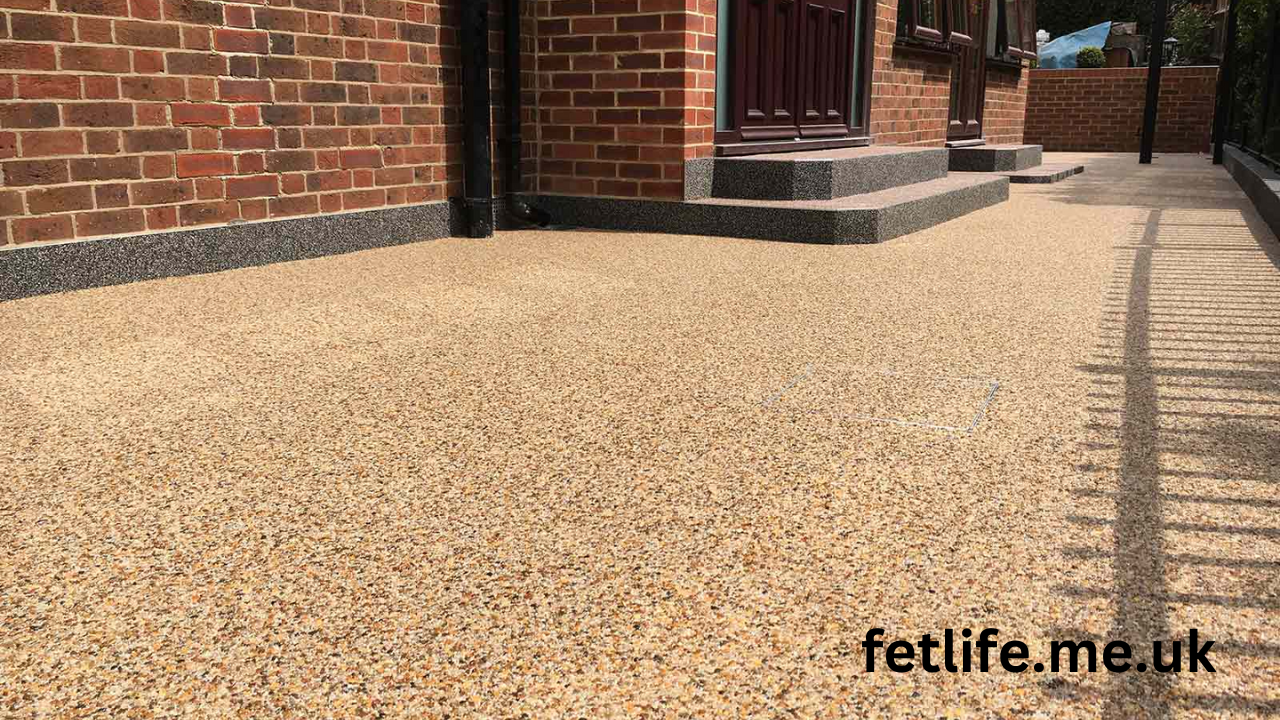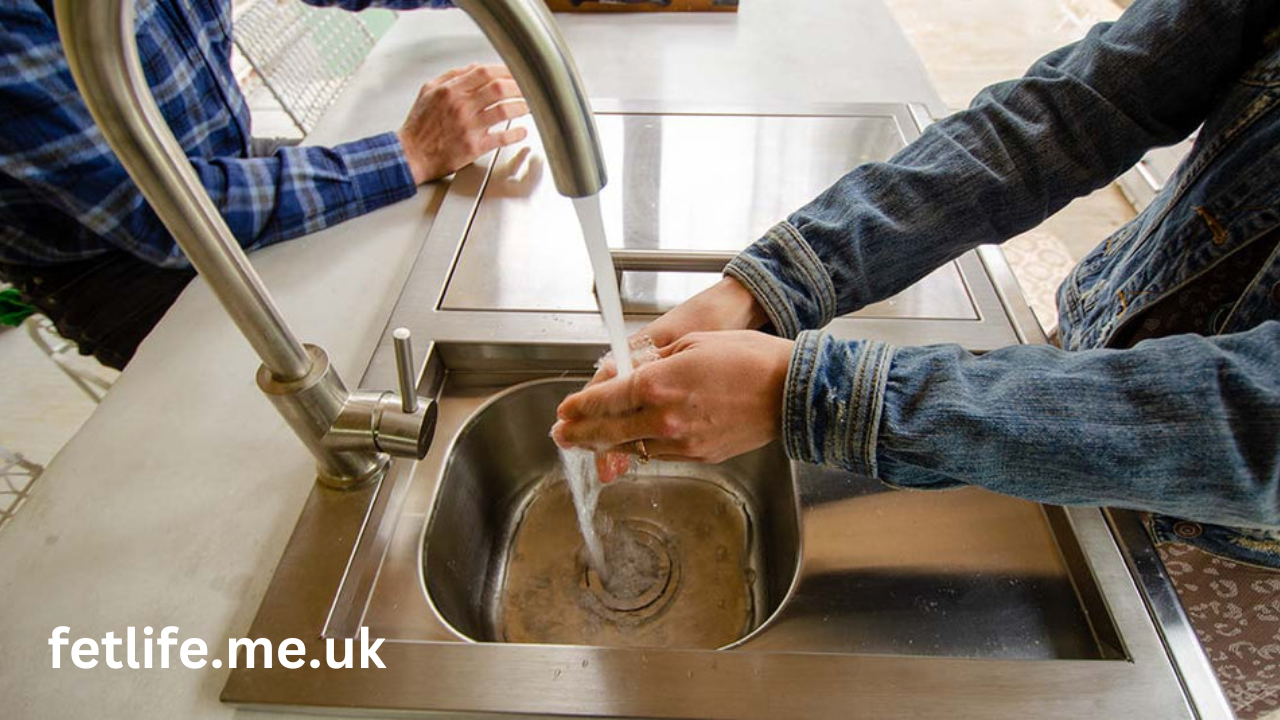The natural beauty and resilience of stone have made it a staple material in construction and design for centuries. However, traditional stone often faces challenges such as porosity, staining, and wear over time. To address these issues, the resin-washing technique was developed. Resin washed stone combines the durability of natural or engineered stone with the protective properties of resin, offering a surface that is as functional as it is visually appealing.
Resin-washed stone is widely used in interior design, architecture, and landscaping due to its ability to enhance the stone’s natural aesthetics while improving its durability. This article explores every aspect of resin-washed stone, including its features, manufacturing process, benefits, and tips for maintenance.
What is resin washed stone?
Resin-washed stone refers to natural or engineered stone that has been treated with a layer of resin. The resin, a synthetic compound derived from polymers, serves as a protective coating that enhances the stone’s strength, appearance, and usability. The resin penetrates the stone’s pores, filling cracks and imperfections, and creates a smooth, polished finish.
The process can be applied to a wide range of stones, including marble, granite, limestone, and quartz. resin washed stone is especially beneficial for stones with natural fissures or irregularities that require stabilization and reinforcement.
Benefits of Resin-Washed Stone
1. Enhanced Durability
Natural stone is often prone to chipping, cracking, and abrasion, especially in high-traffic areas. Resin-washed stone is significantly more durable because the resin layer acts as a sealant that reinforces the stone’s structural integrity.
2. Improved Water Resistance
One of the primary concerns with untreated stone is its porosity, which allows water to seep in, causing discoloration and damage over time. Resin creates a non-porous barrier, making the stone highly resistant to water and moisture.
3. Aesthetic Appeal
Resin-washing brings out the natural beauty of the stone, enhancing its color, texture, and shine. It can transform a dull or rough surface into a polished, luxurious finish that appeals to modern design sensibilities.
4. Stain Resistance resin washed stone
Stone surfaces are prone to staining from spills and other contaminants. The resin layer prevents these substances from penetrating the stone, making resin-washed stone ideal for kitchens, bathrooms, and other high-use areas.
5. Ease of Maintenance
The smooth, non-porous surface of resin-washed stone requires minimal maintenance. Cleaning is straightforward, and the material resists common issues like mold, mildew, and bacteria growth.
6. Versatility
The resin-washing process can be tailored to various types of stone, allowing for a wide range of finishes, from high-gloss to matte. This versatility makes resin-washed stone suitable for diverse applications, including residential, commercial, and industrial projects.
Common Applications of Resin-Washed Stone
Resin-washed stone has gained popularity across numerous sectors due to its functionality and aesthetic appeal. Here are some of its most common applications:
1. Interior Design
- Countertops: Resin-washed stone countertops are popular for their sleek appearance and durability. The non-porous surface makes them ideal for kitchens and bathrooms.
- Flooring: Resin-washed stone flooring adds elegance to spaces while being easy to maintain.
- Wall Cladding: Used as an accent or full-wall treatment, resin washed stone adds sophistication to interiors.
2. Exterior Design
- Facades: The enhanced durability and weather resistance make resin-washed stone suitable for building exteriors.
- Paving: Resin-washed stone is often used for walkways, driveways, and patios due to its slip-resistant properties.
- Landscaping Features: Water features, garden walls, and decorative elements often incorporate resin-washed stone.
Previous article; Telegraph247 Revolutionizing Modern Communication
3. Industrial and Commercial Uses
- Retail Spaces: Durable and stylish, resin-washed stone is commonly used in shopping malls and storefronts.
- Hospitality: Hotels and restaurants favor resin-washed stone for its luxurious appearance and durability.
- Laboratories: The non-porous nature of resin-washed stone makes it suitable for laboratory countertops and other applications where hygiene is crucial.
The Manufacturing Process of Resin-Washed Stone
The production of resin-washed stone involves several steps to ensure that the final product meets the desired standards of quality and performance. Here is a step-by-step overview of the process:
1. Stone Selection resin washed stone
The process begins with selecting the appropriate stone based on the intended application. Factors like color, texture, and structural integrity are considered.
2. Surface Preparation
The stone is thoroughly cleaned to remove dust, dirt, and other contaminants. This step ensures proper adhesion of the resin.
3. Resin Application
A layer of resin is applied to the stone’s surface. This resin may be clear to enhance the natural look of the stone or tinted to achieve a specific aesthetic. The resin penetrates the stone’s pores, filling imperfections and creating a smooth surface.
4. Curing
The resin-coated stone is cured using heat or UV light. This process hardens the resin, making it durable and long-lasting.
5. Finishing
After curing, the stone is polished or honed to achieve the desired finish, whether glossy, matte, or textured.
6. Quality Control
Each piece of resin washed stone undergoes rigorous quality checks to ensure consistency and performance before being shipped to customers.
Comparing Resin-Washed Stone to Other Materials
Resin-washed stone offers several advantages over other materials, making it a superior choice for many applications. Here’s how it compares:
| Material | Durability | Aesthetic Appeal | Maintenance | Cost |
|---|---|---|---|---|
| Resin-Washed Stone | High | High | Low | Moderate |
| Natural Stone | Moderate | High | Moderate to High | Moderate to High |
| Ceramic Tile | Moderate to High | Moderate | Low | Low |
| Engineered Quartz | High | High | Low | High |
How to Care for Resin-Washed Stone
Resin-washed stone is low-maintenance, but proper care ensures its longevity and continued aesthetic appeal. Follow these tips:
1. Regular Cleaning
- Use a soft cloth or mop and a mild soap solution to clean the surface.
- Avoid abrasive cleaners or scouring pads that could damage the resin layer.
2. Avoid Harsh Chemicals
- Do not use acidic or harsh chemicals, such as bleach or ammonia, as they may degrade the resin over time.
3. Protect the Surface resin washed stone
- Use coasters, trivets, and placemats on countertops to prevent scratches and heat damage.
- Avoid dragging heavy objects across resin-washed stone surfaces.
4. Periodic Maintenance
- Over time, the resin layer may wear down. Reapplying resin can restore the stone’s original appearance and performance.
- For high-traffic areas, consider professional polishing every few years.
Environmental Considerations
Resin-washed stone offers some sustainability benefits compared to other materials:
- Longevity: Its durability reduces the need for frequent replacements.
- Waste Reduction: The resin-washing process can salvage stones with minor defects, reducing waste.
- Recyclability: Resin-washed stone can often be repurposed or recycled at the end of its life cycle.
Innovations in Resin-Washed Stone
The resin-washed stone industry continues to evolve, with innovations aimed at enhancing its performance and sustainability. Some recent trends include:
- Eco-Friendly Resins: The development of bio-based resins that reduce reliance on petroleum-based materials.
- Customizable Finishes: Advanced technologies allow for intricate textures and patterns, giving designers greater flexibility.
- Antimicrobial Coatings: Adding antimicrobial properties to the resin layer for increased hygiene in healthcare and food preparation settings.
Conclusion
Resin washed stone is a versatile and durable material that combines the natural beauty of stone with the advanced protection of resin. Its many benefits, including enhanced durability, water resistance, and ease of maintenance, make it an ideal choice for a variety of applications in residential, commercial, and industrial settings.
Whether you’re renovating your home, designing a commercial space, or planning a landscaping project, resin-washed stone offers an excellent blend of functionality and aesthetics. With proper care and maintenance, it can provide a lasting, high-quality finish that stands the test of time.










